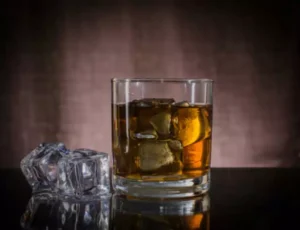How Cortisol Levels Affect Your Blood Sugar?

Despite marijuana addiction these recent conflicting observations, most data from human and preclinical studies suggest that alcohol decreases basal glucose uptake by the brain. Glucose homeostasis is critical for normal functioning of the central nervous system and cells which have an obligatory requirement for this metabolic substrate. Acute and chronic alterations in the prevailing glucose concentration (i.e., hypoglycemia and hyperglycemia) can adversely impact cellular and organ function. As the underlying mechanisms of alcohol-induced changes are oftentimes dependent on the exposure time and intoxication level, these variables will be identified and accounted for when relevant.
- Artificial sweeteners may be synthetically made or made from regular sugar via a chemical process.
- If you’re having frequent trouble in managing your BGLs, you should consider if it’s safe for you to drink alcohol.
- If you rely on carbohydrate counting for meal planning, understand and consider how the type and amount of drinks you select will impact your blood glucose levels.
Tips to manage blood sugar levels

It’s important to keep your personal health top-of-mind, right along with the advice of your healthcare provider. The increase in blood sugar levels gives way to hyperglycemia, or too-high blood sugar. This can cause a host of symptoms, from thirst and frequent urination to slow-healing wounds and disorientation. To avoid a spike, count the calories and carbs that derived from sugar alcohols. While most sugar alcohols are absorbed poorly, incompletely or slowly, they still have minimal calories and sugar. This is important to note because sugar alcohols are often used nutritionally in diabetes management.
- With all of this in mind, the risks of drinking alcohol when you have type 2 diabetes may outweigh any benefits.
- Recruitment of GLUT4-containing vesicles to the cell membrane is dependent upon activation of AKT and the downstream phosphorylation of AS160 135.
- There is one sugar alcohol that stands out among the rest so keep reading to find out which one does not impact blood sugars and is well tolerated.
- Additionally, humans chronically consuming alcohol often have some type of hypercholesterolemia, cardiovascular disease and/or heart dysfunction, and only recently have attempts been made to mimic this situation in animal models 152,154,155,156.
What are sugar alcohols?
Sugar alcohols are neither sugar nor alcohol but share properties with both. They have a similar structure to sugar, with a hydroxyl group attached to each carbon atom. This group is a characteristic of alcohol, which is why sugar alcohols are classified as such.

Alcohol + your body
Maltitol is roughly 90 percent as sweet as sugar and provides 2.1 to 2.4 diabetes and alcohol blackouts calories per gram (3). Its GI of 36 is higher than that of other sugar alcohols, but still lower than regular sugar. Like sorbitol, maltitol can cause digestive discomfort if consumed in large quantities. And those with diabetes need to bring down elevated glucose levels.
It’s also important to read the hydrochlorothiazide label and other paperwork that may come with the drug. The paperwork, sometimes called the medication guide or patient package insert, may contain details about interactions. Because of this, it’s important to tell the person giving you the test that you’re taking hydrochlorothiazide.


Excessive or binge drinking is defined as having more than five alcoholic beverages in a two-hour time span for men, or four for women. These processes don’t require insulin, a hormone that turns glucose into energy. This is good news for peeps with diabetes who have issues producing insulin. Foods may be sweetened with non-caloric sweeteners like saccharin, acesulfame potassium, or sucralose which contain no carbs, but again, you need to check the food label to see how many grams of carbohydrate are in each serving. Some sugar substitutes are called “high intensity” because they taste much sweeter than sugar.
If you’re taking hydrochlorothiazide, ask your doctor or pharmacist before taking an NSAID. Combining an NSAID and hydrochlorothiazide may also increase your risk of kidney problems. Because kidney problems are a possible side effect of either drug, taking them together can raise your risk of this side effect. Your doctor will likely recommend that you do not drink alcohol while taking hydrochlorothiazide. They’ll also usually advise you not to take any prescription or OTC drugs that contain alcohol during hydrochlorothiazide treatment.
Since foods that contain NSS are considered to be ‘ultra processed foods’ by the NOVA classification, this position statement should be read alongside SACN’s 2025 evidence update on processed foods and health. Before you start treatment with hydrochlorothiazide, tell your doctor and pharmacist about any supplements, herbs, and vitamins you take. If you need to take an NSAID while taking hydrochlorothiazide, talk with your doctor about how to monitor your blood pressure and kidney function. For instance, your doctor may order kidney function tests if you take these medications together. Consuming alcohol and taking hydrochlorothiazide (which is prescribed to reduce blood pressure) may cause your blood pressure to drop too low.